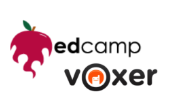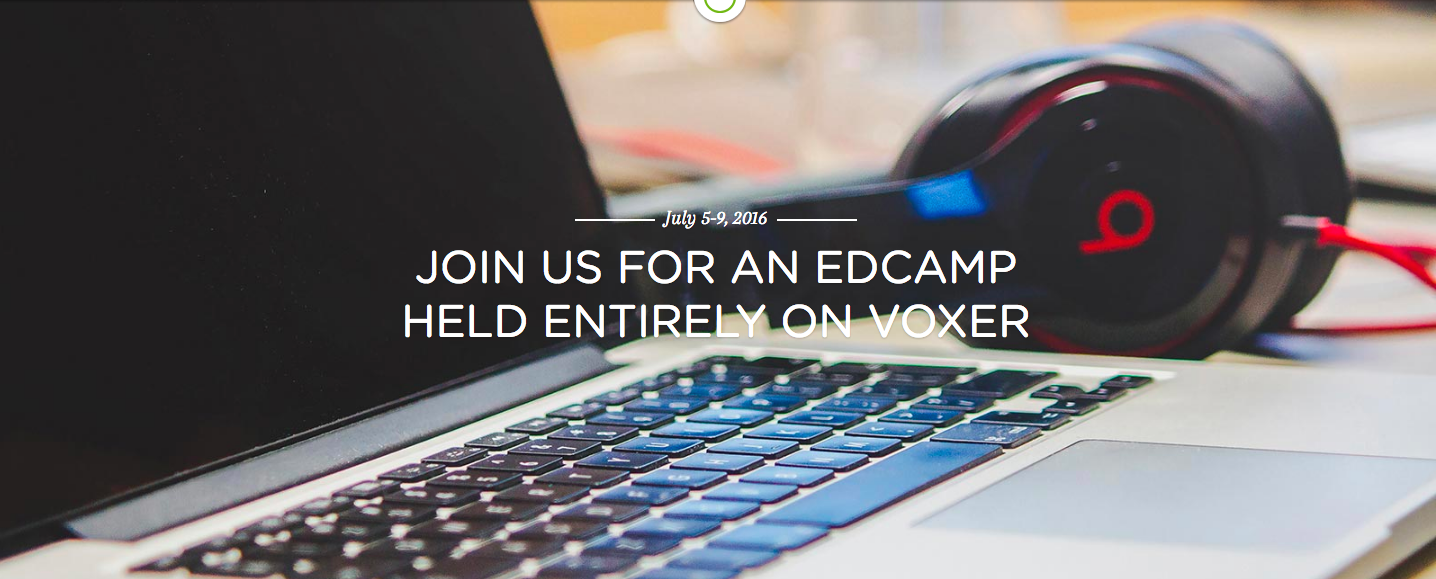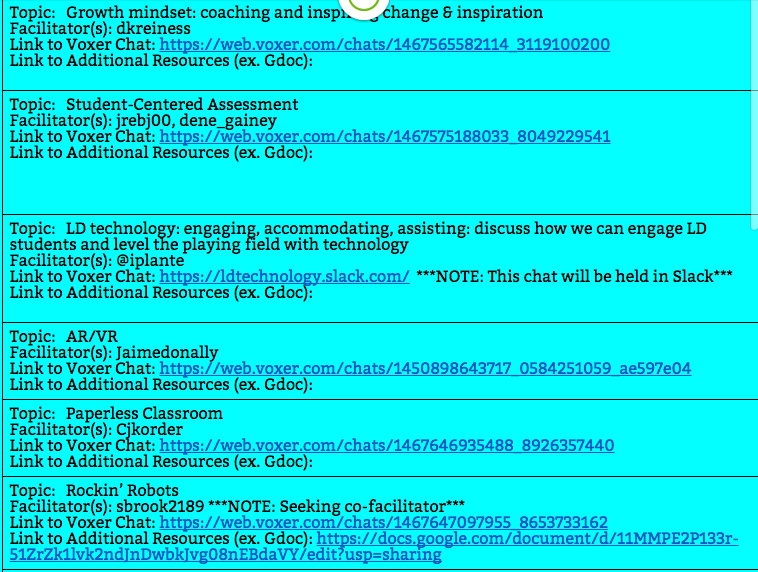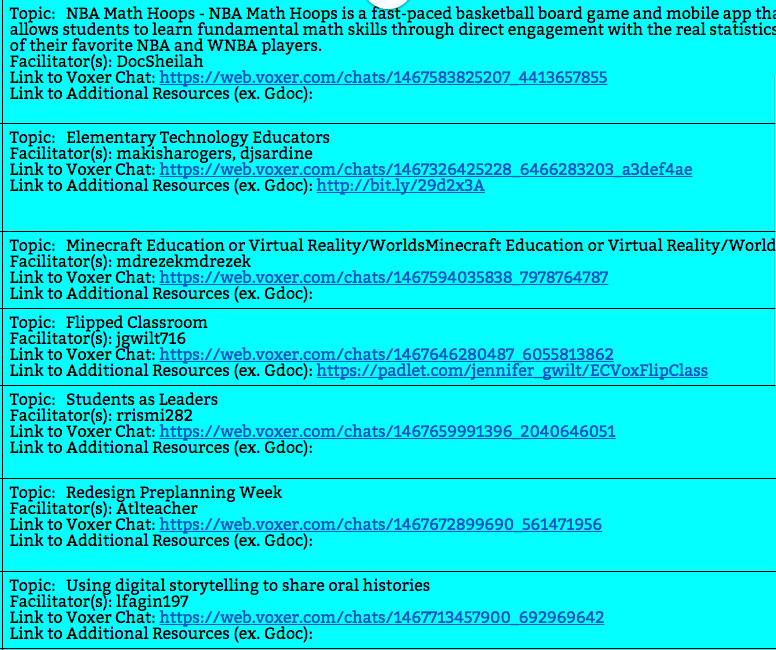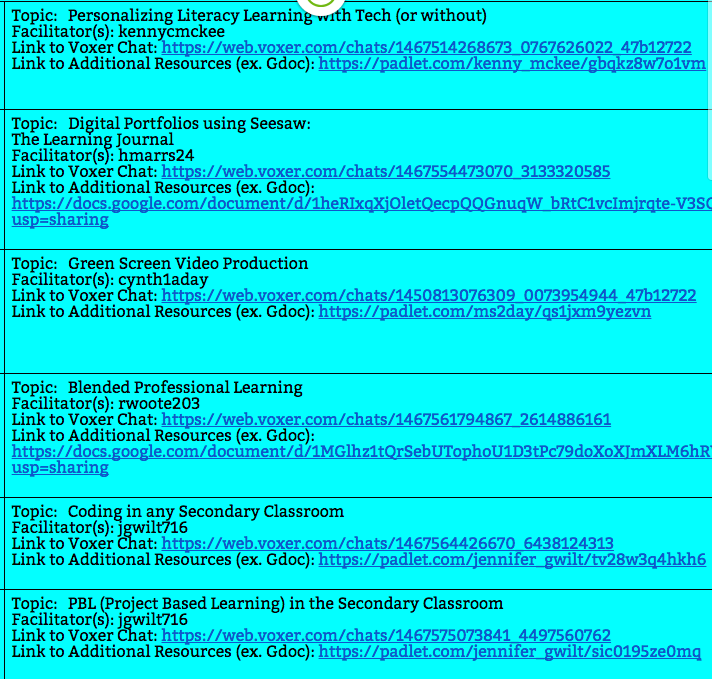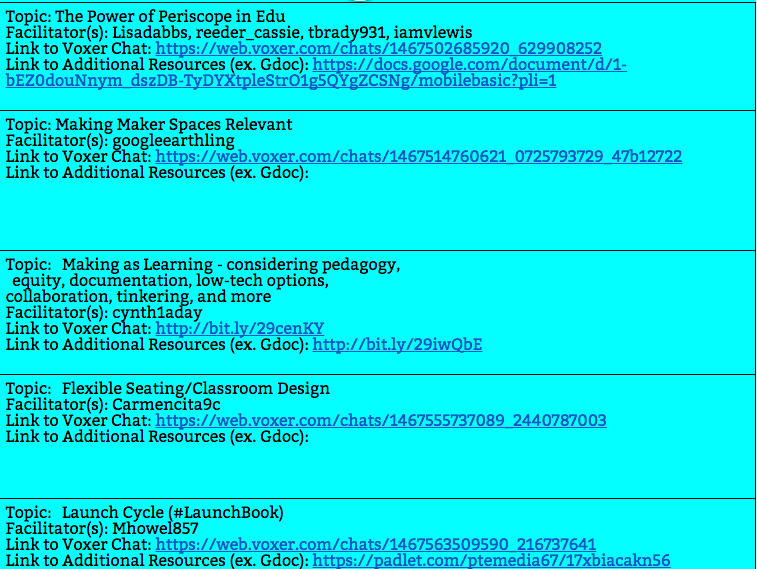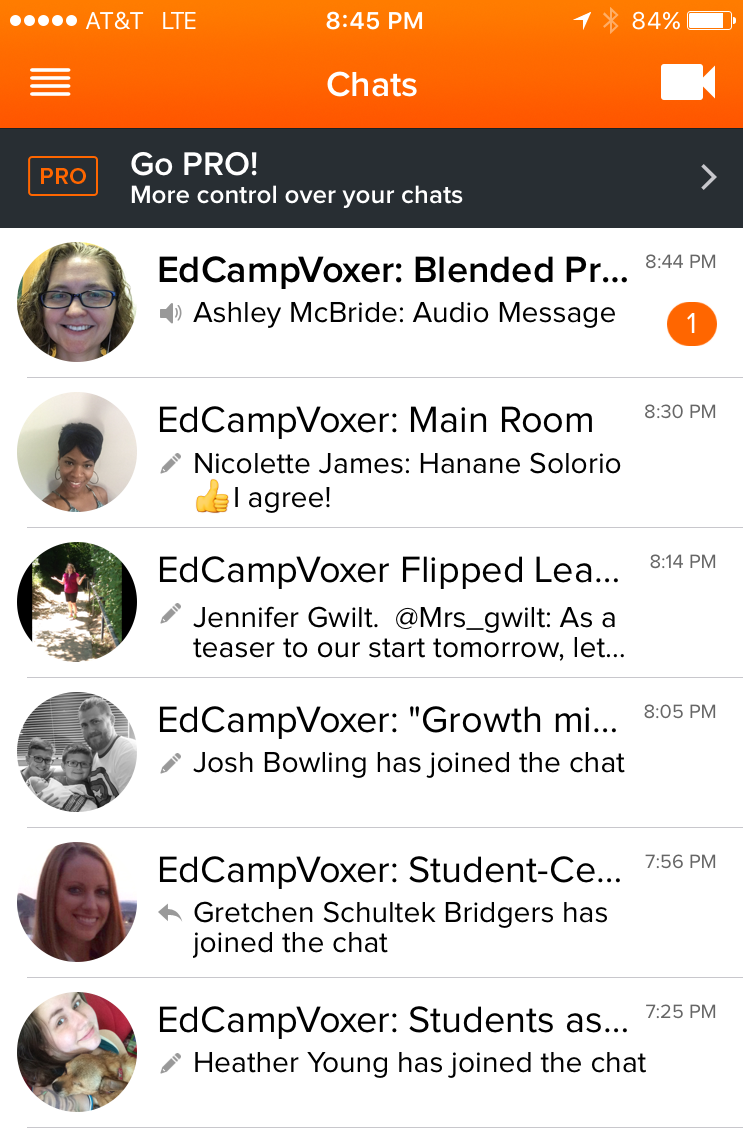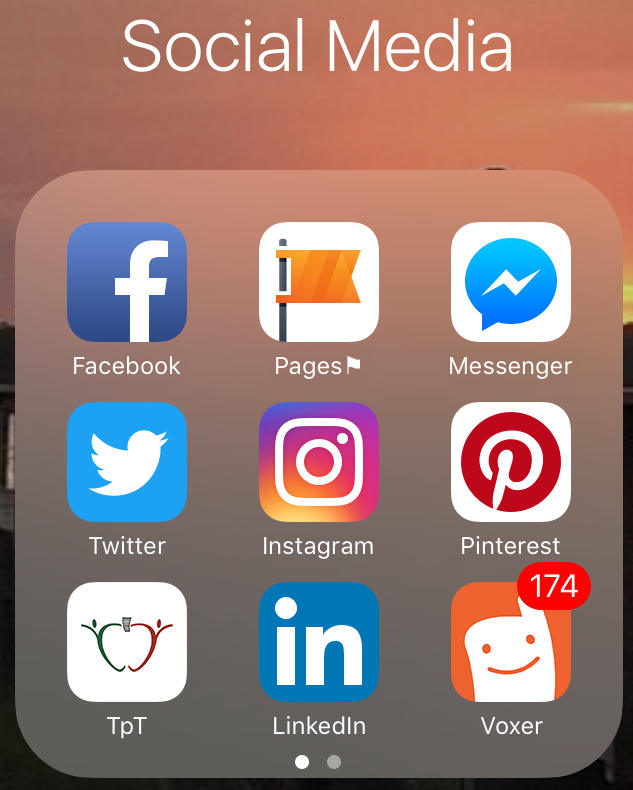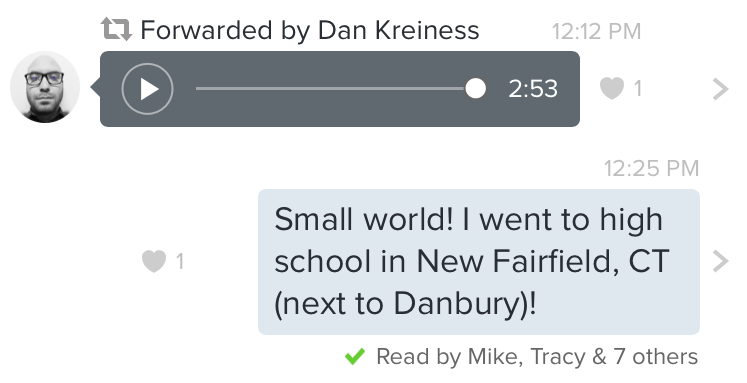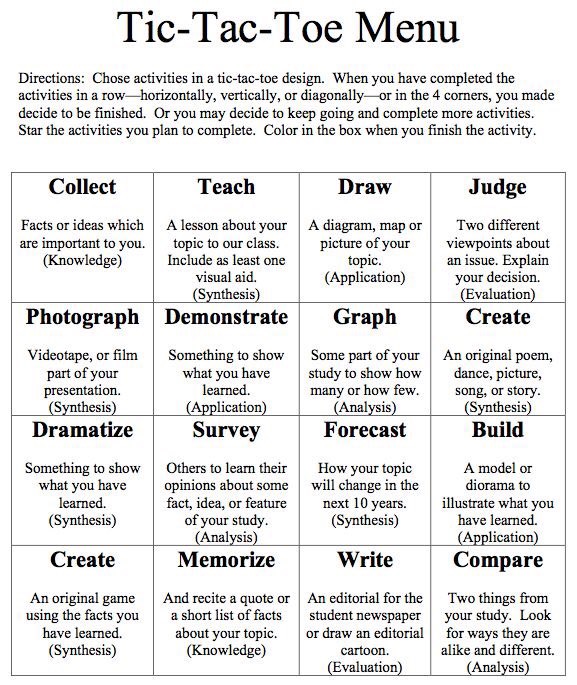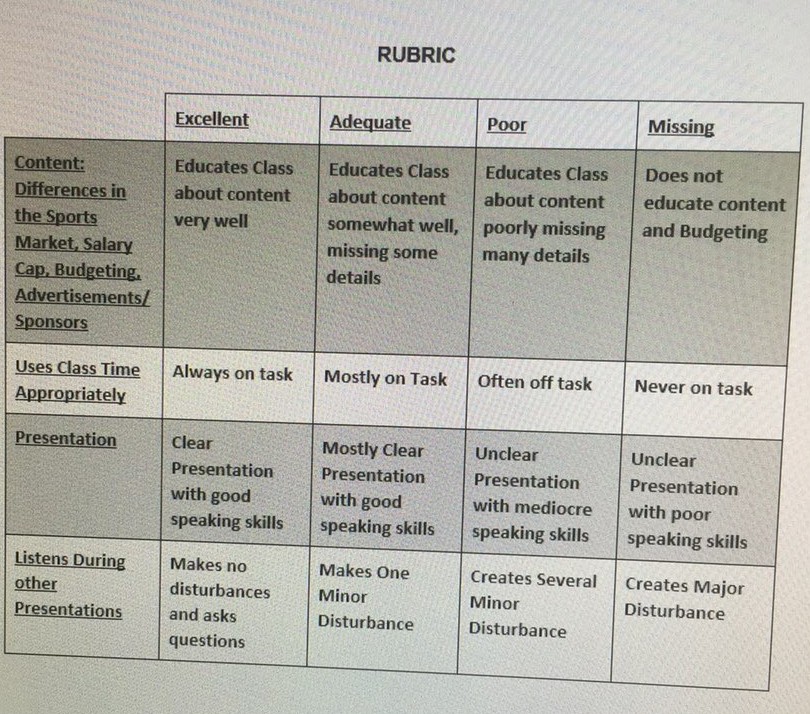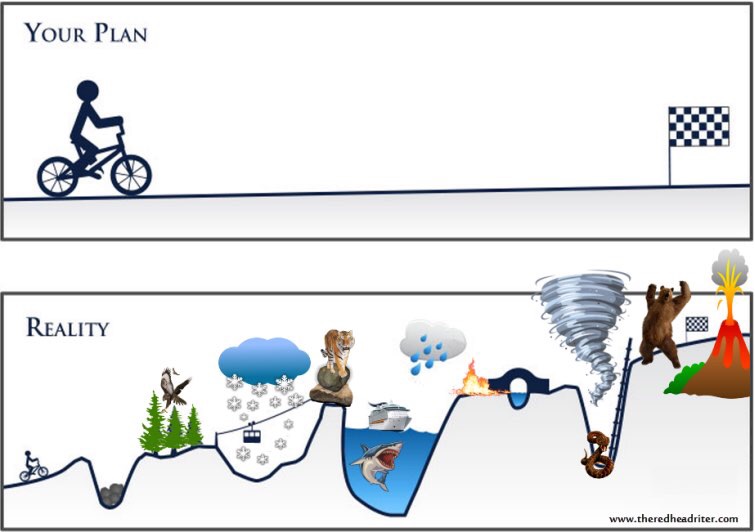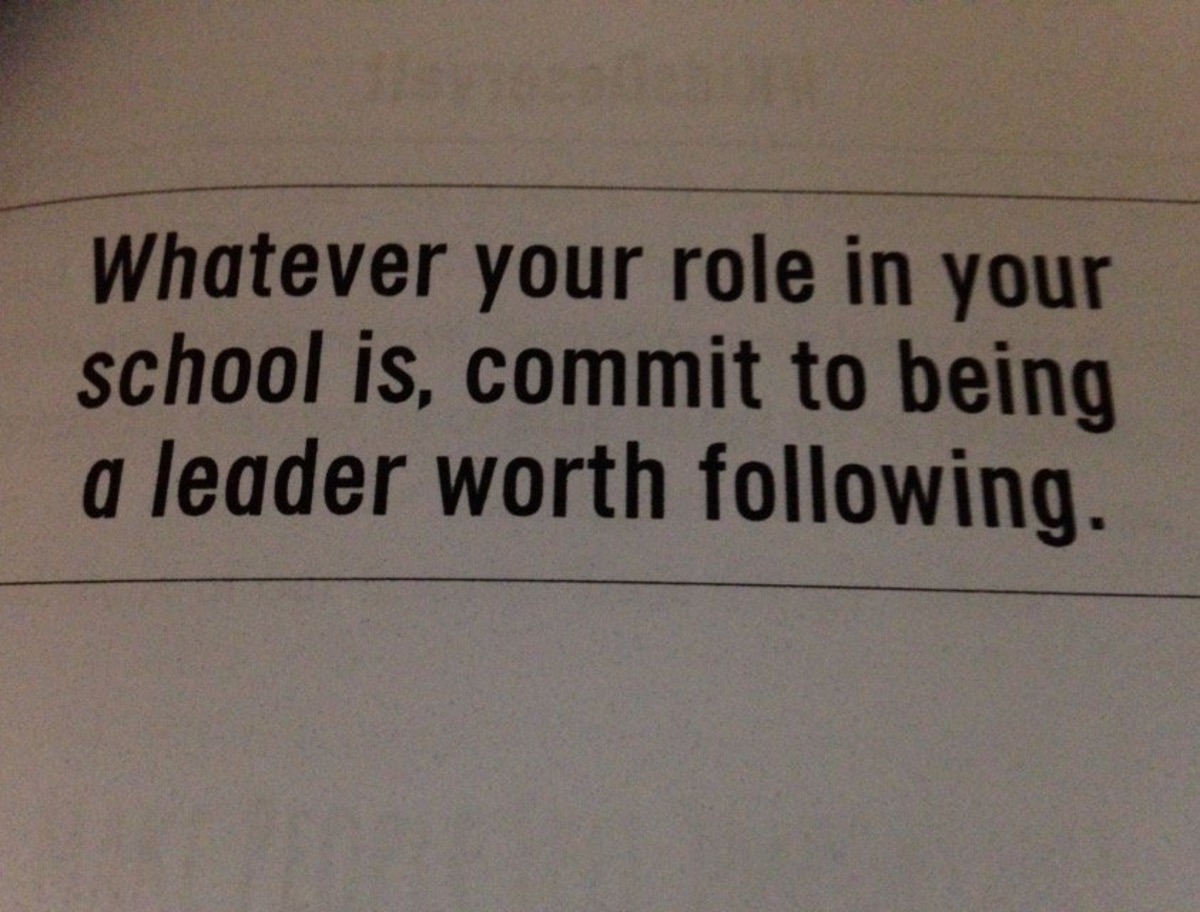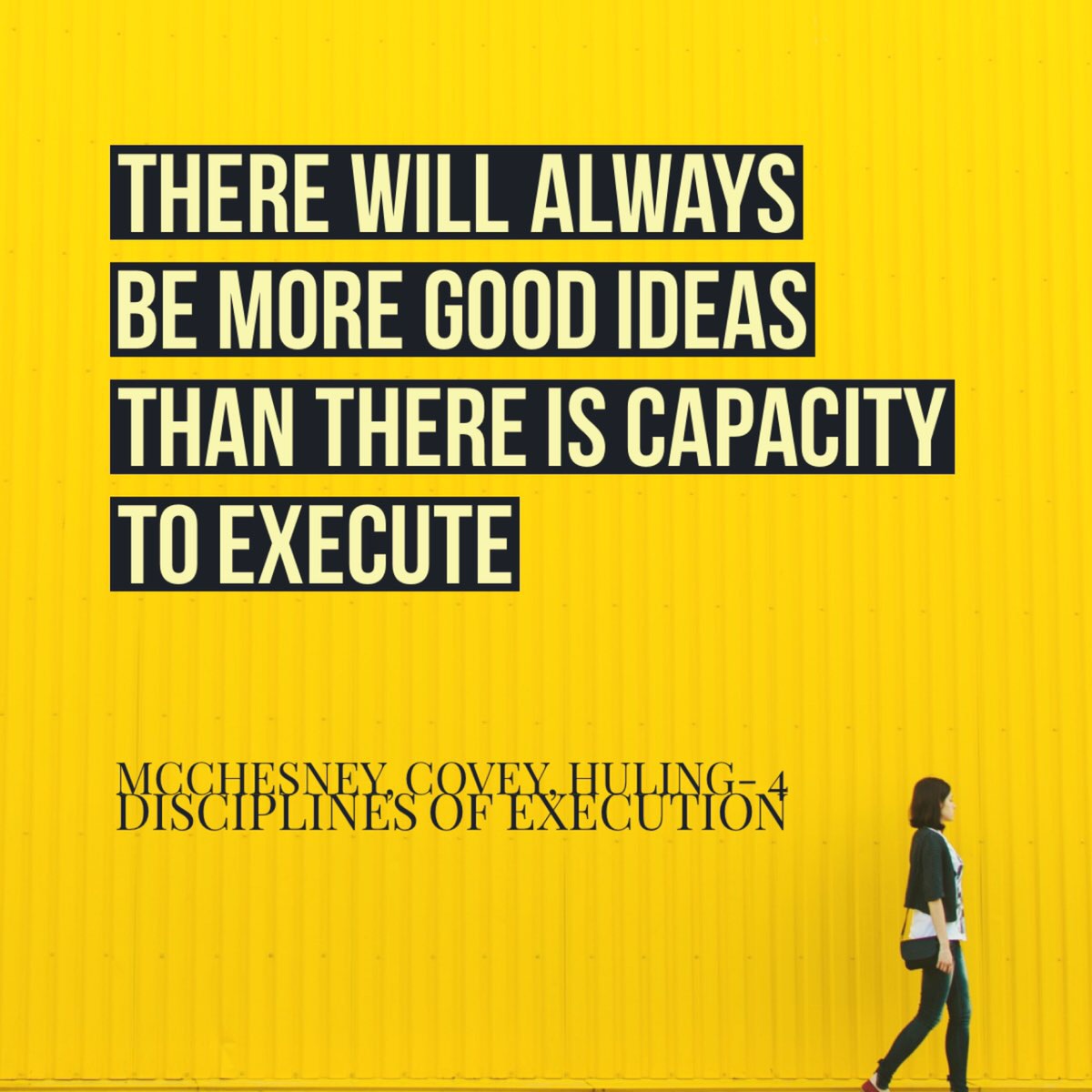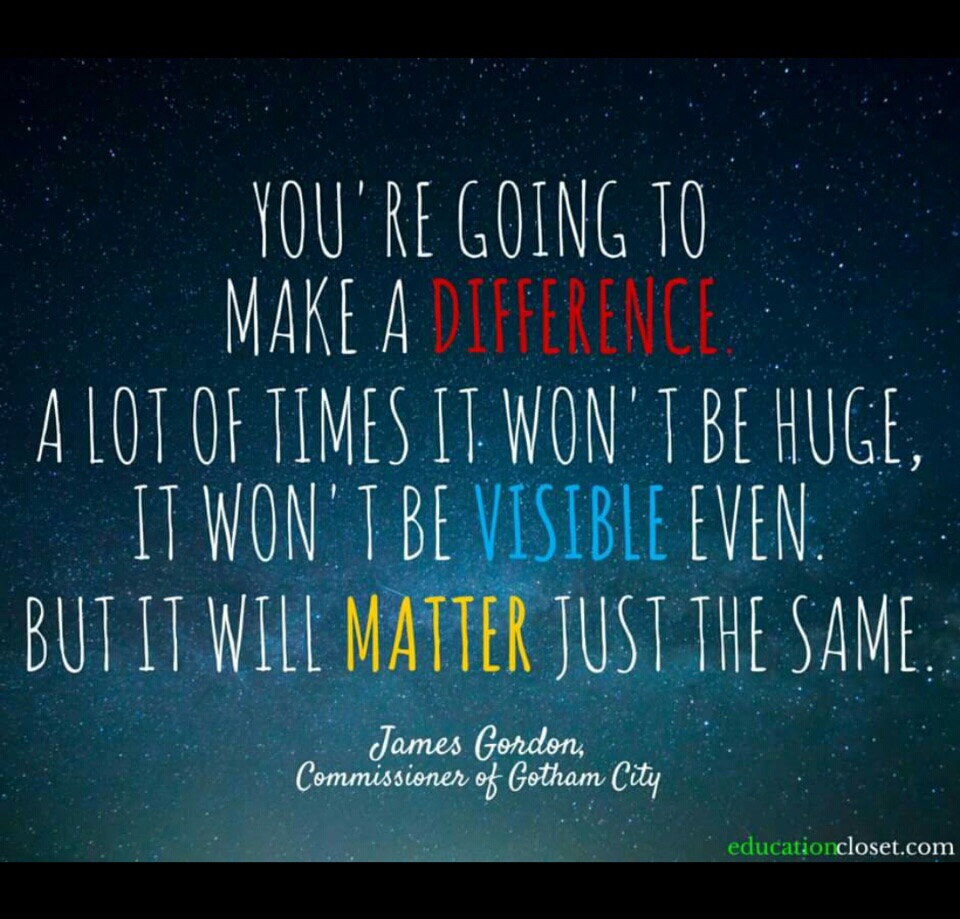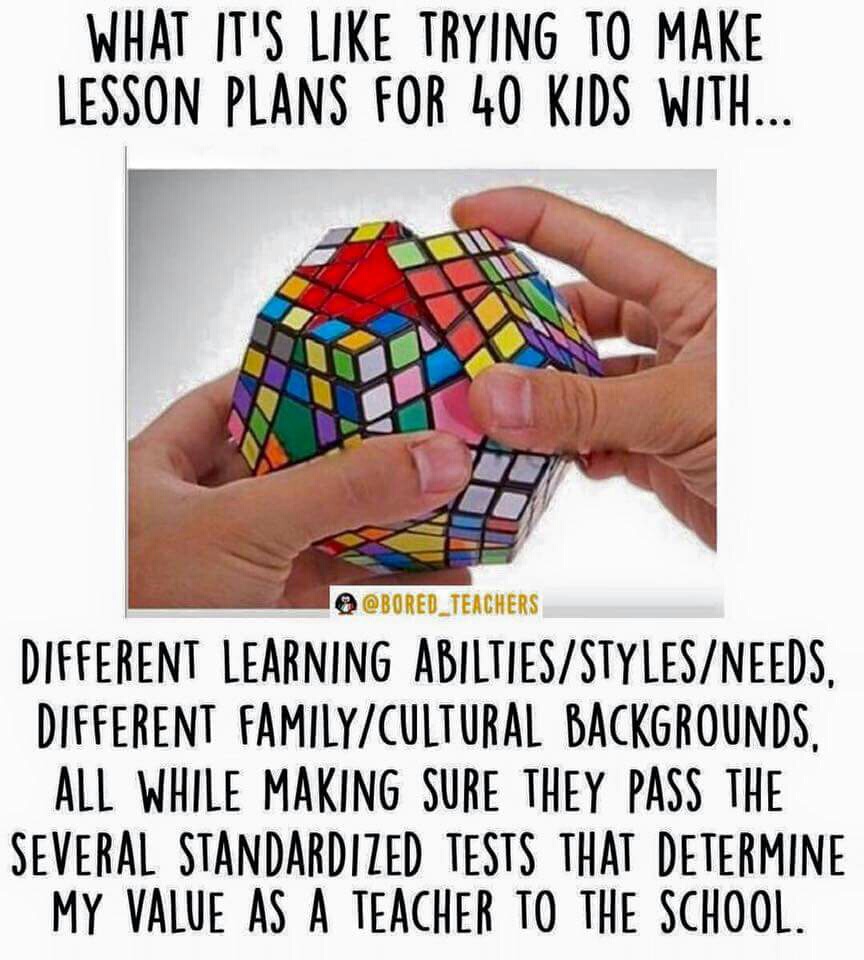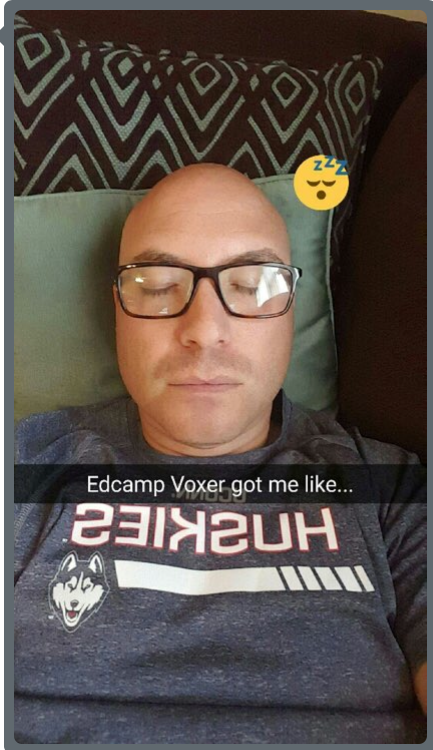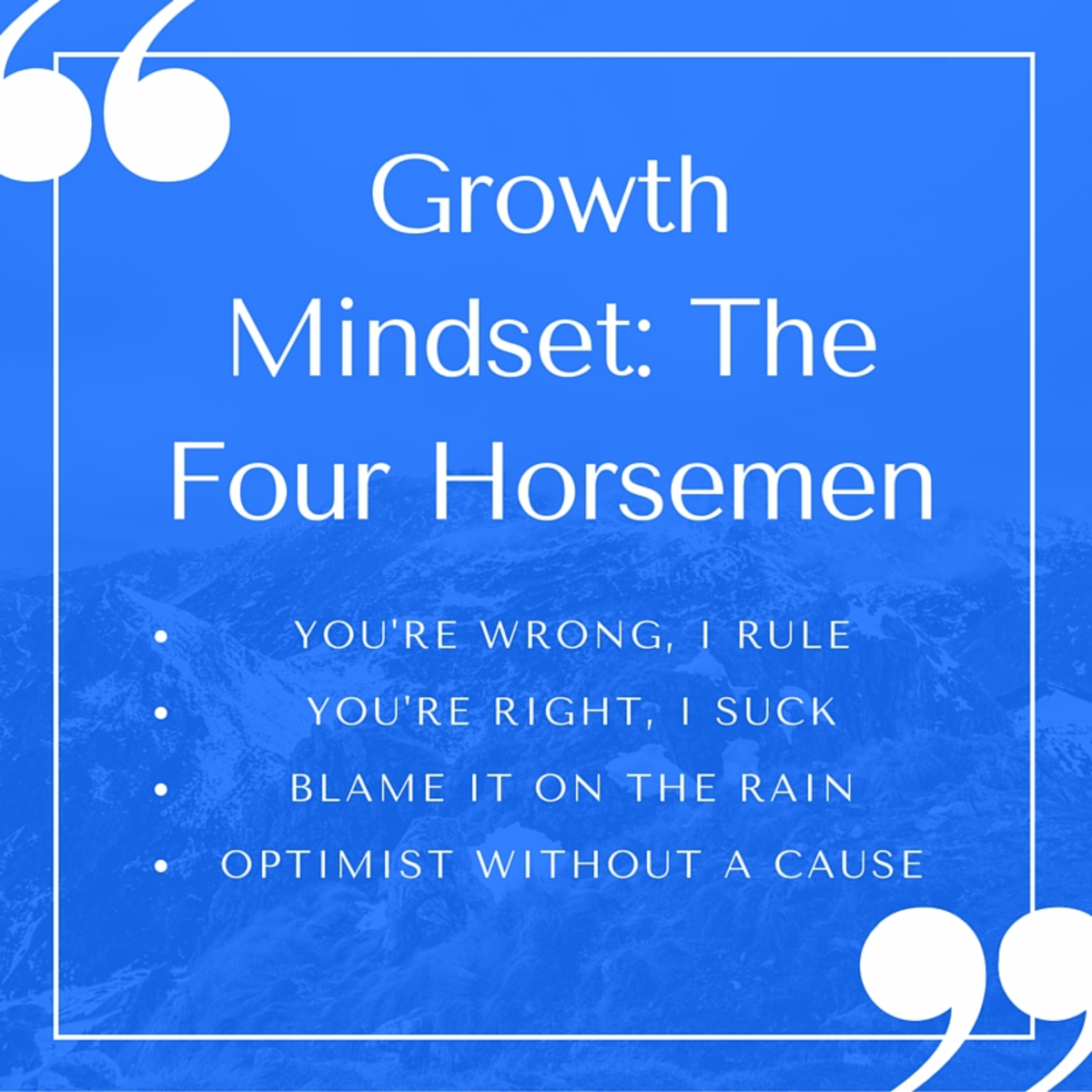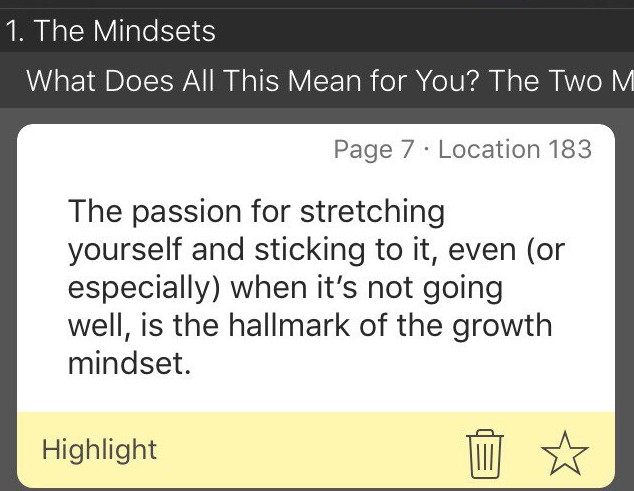Edcamp Voxer 2016
I am so excited to share with you how impactful the latest week-long Edcamp Voxer experience was because it continues to shape my growth as an educator. Let’s start with some basics first. [See previous post from Edcamp Voxer 2015 here.]
Get in on the Action!
- Want to participate this year? Click here. Or check their website for upcoming events by clicking here. Also, you can follow them on Twitter!
- New to voxer? Learn the Do’s and Don’ts here. Click here for a list of edu-Voxer groups to join!
- Prefer Twitter? Click here for a list of educational Twitter chats.
Session Topics
Like any Edcamp there were a TON of amazing sessions that educators around the globe proposed. I combed through the ever-growing list and clicked the link to hop in the discussion (no more “voting with your feet” to exit a room to catch another amazing topic happening at the same time in another room- I got to hop in and out of these virtual rooms of discussion seamlessly.) Note: EdCamp Voxer is a week-long chat that occurs over long breaks in the school calendar (like Christmas, Spring Break or over summer) which allows you to pop in and out when you can without having to be available one day at a specific time, like the average edcamp model.
My Groups
I love that Voxer is an organized app! I was able to clearly see which group chats I had hopped in to and could easily differentiate them from my normal Voxer chats because they all began with the same heading “EdCampVoxer: ________.” The Main Room is where everyone participating in the edcamp is added and from there can make decisions about sessions to attend. From here you can hear announcements and keep up-to-date on the logistics of the edcamp.
Warning: This room gets packed and very busy so as soon as you feel you have jumped into all the groups you are interested in, you can easily “leave” the Main Room. This cuts down on notifications tremendously.
I hopped in and out of the following groups: blended professional learning, flipped learning, growth mindset, student-centered assessment, and students as leaders in the classroom. I must admit though, some chats were slower moving and I ended up exiting so that I could focus all of my attention on two busy groups- growth mindset and student-centered assessment. Growth mindset is pretty big right now in education and I LOVE the idea so I wanted to make sure I was well versed in the theory. As a teacher, I NEVER put the attention I should have into assessments so this discussion was my area to grow in. Therefore, I had one fun chat and one grow chat!
Waking up to the words of inspiring educators made my day! I looked forward to catching up (aka “binging”) on any discussion I missed through the evening (hello night owls and west coasters!).
Key Take-Aways
1. Connecting across the globe sometimes means connecting with your neighbor! Dan introduced himself to the group and I quickly realized we had a lot more in common than I would have thought!
Dan is from Derby, CT. That caught my attention, so I texted in [see above] in which he replied by voice….
2. Prioritizing tools can save you time and avoid the dreaded overwhelm. This easy chart was shared for how to categorize tasks so that you can focus on what needs to get done by differentiating between “important” and “urgent” tasks as those lines often get blurred. Get ready for productivity to be enhanced!
3. Defining student-centered assessment & how it can shape classroom experiences is the first step to positive change. You have to understand the WHAT before you begin on the HOW. I always gave assessments, mostly because it was required. I often personalized the assessment so it directly reflected what students had learned. But, I rarely (in fact, never) allowed student input in designing the assessment. I have been missing out on one powerful learning experience for students and myself, especially because I am all about student empowerment and accountability. My edu-buddies helped me realize how important it is to have students design assessments and how this life-long skill helps students categorize information, hone in on what’s most important, and plan accordingly to brush up on weaker academic areas.
Two resources were shared with me: a choice menu and a rubric. The choice menu focused on Bloom’s level of skill ensuring students could use their preferred learning styles to demonstrate understanding while still being challenged. The rubric for an assignment may seem simplistic but the kiddos created it! I absolutely love the ownership in that and I wouldn’t change out the wording just because it seems basic. Having students think through the level of assignment before working on their own helps them develop the ideal product in their minds and motivates them to turn in just that when its time. If I were a student developing an assessment, you better believe I would be motivated to get that top score, especially because I now had the confidence of what was going to be assessed I could easily meet the bar. I would no longer be a “bad test taker!”
4. Pushback can make or break your momentum in achieving your potential. Admin might push back when you want to try cutting edge techniques in the classroom. Parents might push back when the way you teach curriculum is unfamiliar to how they learned it as a child. Colleagues might push back when you are requesting them to step outside their comfort zone. Students might push back when you give too much structure or too much flexibility. However, the key to you achieving your potential is by thinking through your instructional approaches- the what’s, how’s and why’s- and sharing that with all stakeholders. When they feel informed and have access to your rationale they are much more willing to support you. The best thing you can do is keep on….be true to yourself, be open-minded to the concerns shared with you and most importantly put kids first.
[spp-tweet tweet=”Pushback is uncomfortable but its not always an obstacle, its often an opportunity. “]
5. Passion is contagious. There were a lot of sessions I was not originally drawn to but hearing the voices of educators discuss the topics immediately had me hooked. How could I not get excited when the people discussing important educational topics are on fire for bettering the profession? It’s an honor to be surrounded by positive people- my PLN is virtual and global and that is priceless. Go find other passionate educators, those who care about things you might not and you’ll be surprised how much you learn and grow just by being around them!
Quotables
There were some smarties in the groups and sometimes I just had to write down things they said!
-
- “You show people what’s important by where you put your time.” – Jeffry Pricket
- “To lead people, walk behind them” – Lao Tzu [famous quote]
- “If you want to lead people, walk behind them.” – Raye Wood
- “Just because you have a title position doesn’t mean you are a leader.” – Raye Wood
- “Relationships matter. Kids don’t come to school to take a test, they show up because someone cares about them. For many Ss, your class could be the only place they get that support. Keep the good fight going!” – John Fortney
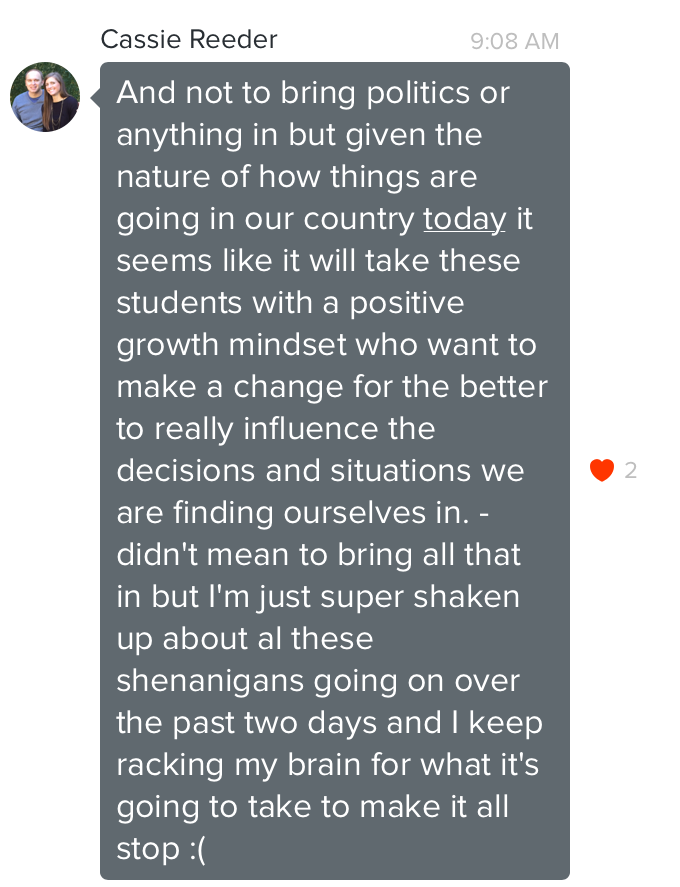
Helpful Graphics
Who doesn’t love a good visual? My edu-buddies shared some pretty good ones and I couldn’t resist sharing with you:
Suggested Resource
Our growth group often referenced “Mindset” by Carol Dweck. I did a LOT of listening here since I hadn’t read her work as of yet. See her Ted Talk here.
It was so interesting discussing approaching learning with adults and what their fixed mindset is based on The Four Horsemen categories. Of course, we then related this immediately to students and how their environment often shapes their perspective on growth. Fascinating stuff- I am still thinking on this one!
Concluding Thoughts
As promised, EdCamp Voxer 2016 was well worth it. Even more, it reminded me how important it is that we are true life-long learners. We must check our labels and titles at the door and really open up to learn by asking questions, listening with intent and purpose, taking lots and lots of notes, asking for help to apply the new knowledge to our lives, etc. I would not trade this experience for anything and highly encourage you as a professional and as the leader of precious kiddos who are our future to invest in yourself- it doesn’t get any easier than your pjs, sofa, snack, drink and device!
COME GROW WITH US!
Looking for more information about Voxer? Check out these helpful blog posts:
How Can an Educator Gain Effectiveness through the Voxer App?
My New Favorite Tech Tool: Voxer
What is your favorite part of EdCamp?

